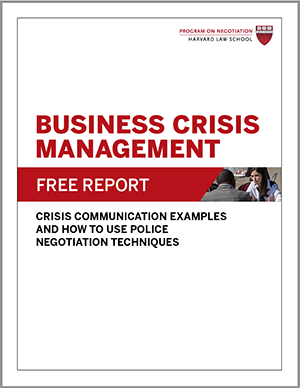
As nations rush to slow the COVID-19 pandemic, treat victims of the virus, and develop cures, they face strong motivations to cooperate with one another rather than compete. Scientists and technical experts can help spearhead this collaboration, said Professor Paul Berkman, director of Tufts University’s Science Diplomacy Center, during a March 26 online talk hosted by the Program on Negotiation at Harvard Law School.
During this time of crisis and uncertainty, “science diplomats” have opportunities to build international, inclusive networks, facilitating informed decision-making that balances national and common interests “for the benefit of all on Earth across generations,” according to Berkman. Collaborative negotiation skills can help guide this challenging process.
A Call to Collaborate
After World War II, the world was “brought to its knees by the horror and destruction of violence,” Berkman noted. In the following two decades, the international community recognized that all nations would benefit from designating areas of the earth—and beyond—as common interests. International treaties were negotiated to prevent destructive competition in Antarctica, outer space, and the deep sea.
Eventually, the world succumbed to a period of nationalism that lasted “until a couple weeks ago,” when governments were newly motivated to cooperate to fight the spread of the virus, said Berkman. “We’re living through a period of common interests in the absence of global conflict.”
“There’s been a tide change, in that the world is now keenly aware of the importance of common interest-building as opposed to self-interest,” said Berkman. “Presumably, that will increase. I hope we will carry that sentiment with us and use it as guidance as we build on a planetary scale.”
Analyzing currently available data on the global spread of COVID-19, Berkman projected that it will take four to five months for the infection to sweep the globe and subside. Out of this “gloom and doom time,” Berkman said, “my hope is to work with you and others to awaken a global renaissance of lifelong learning as we rebuild on the other side.”
Calling science the “study of change,” Berkman noted that different levels of learning and cooperation are possible at different points in the current pandemic. The challenge is to respond to change with informed decisions—ones that begin with questions rather than assumptions.
Making the Most of the Global Pause
“While we’re all sequestered, we can think and produce together in ways that would not have been possible when we were running around the world to meetings on a regular basis,” Berkman noted. “There is time in a way there wasn’t before”—including time to identify questions of common concern and the methods needed to answer these questions. “While the world has slowed down, we have the greatest opportunity to plan thoughtfully for the future . . . through discussions and networks.”
“Some nations are working together more rather than others,” Berkman acknowledged. The key is to “emphasize the cooperative moment, learn from it, and figure out how to sustain it beyond the pandemic.”
When asked to identify current hotspots of common interest-building, Berkman noted that “data is a rallying point right now” for nations and organizations. “Health organizations are sharing data. Journals are making all articles on COVID-19 available for free,” he said.
“Governments around the world are recognizing that science and technology advice is important in decision making,” Berkman added. “The challenge is to aggregate advice from individual experts to the benefit of all. New collaborative communities will need to be built.”
Educating for a More Collaborative Tomorrow
Berkman sees education at the heart of the global renaissance he envisions—from K-12 education to college and beyond. “The challenge is to give people the skillset to make informed decisions that operate along a continuum of urgency,” he said. Armed with “a generalized skillset,” younger and future generations will be able to “work in the face of change, to think short-term to long-term.” Tomorrow’s leaders need to be “the most gifted, informed decision makers—those who are best at distilling information and creating balance among different stakeholders and being inclusive.”
“When we share common interests, competition between allies and adversaries is minimized,” said Berkman. He described how the United States and the Soviet Union came together in 1959, at the height of the Cold War, to negotiate a treaty that banned nuclear weapons from Antarctica for all time. The parties built a process of continued consultation on matters of common interest—most notably, the survival of all of the Earth’s inhabitants.
“Science is a tool of diplomacy,” said Berkman. “We all have opportunities to serve as science diplomats, bringing together allies and adversaries.” He described how he and a colleague from Moscow, despite having no ties to government, managed to convene a formal dialogue between NATO and Russia to address security issues arising in the Arctic Ocean. “If someone like me without any real position call pull together allies and adversaries, that capacity belongs with all of us.”
“Our journey as a civilization is to think across centuries,” Berkman concluded. “I hope we have opportunities to build a civilization across centuries that is hopeful and peaceful.”





